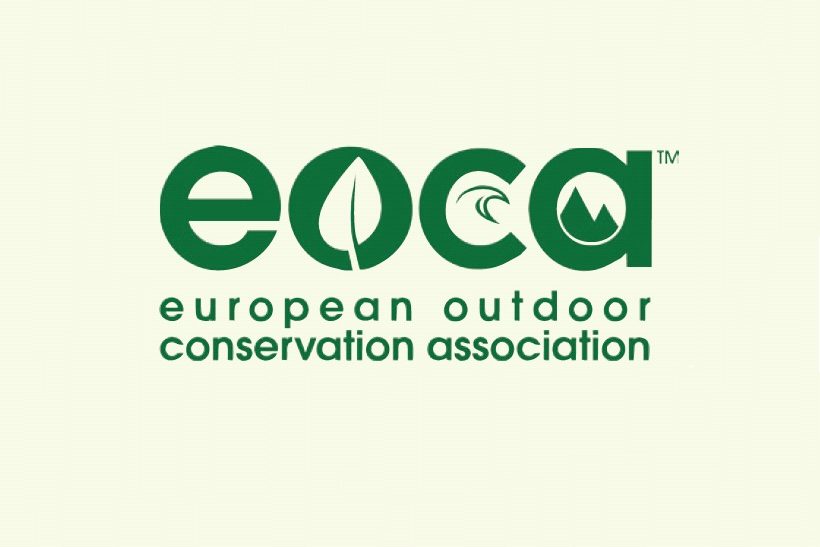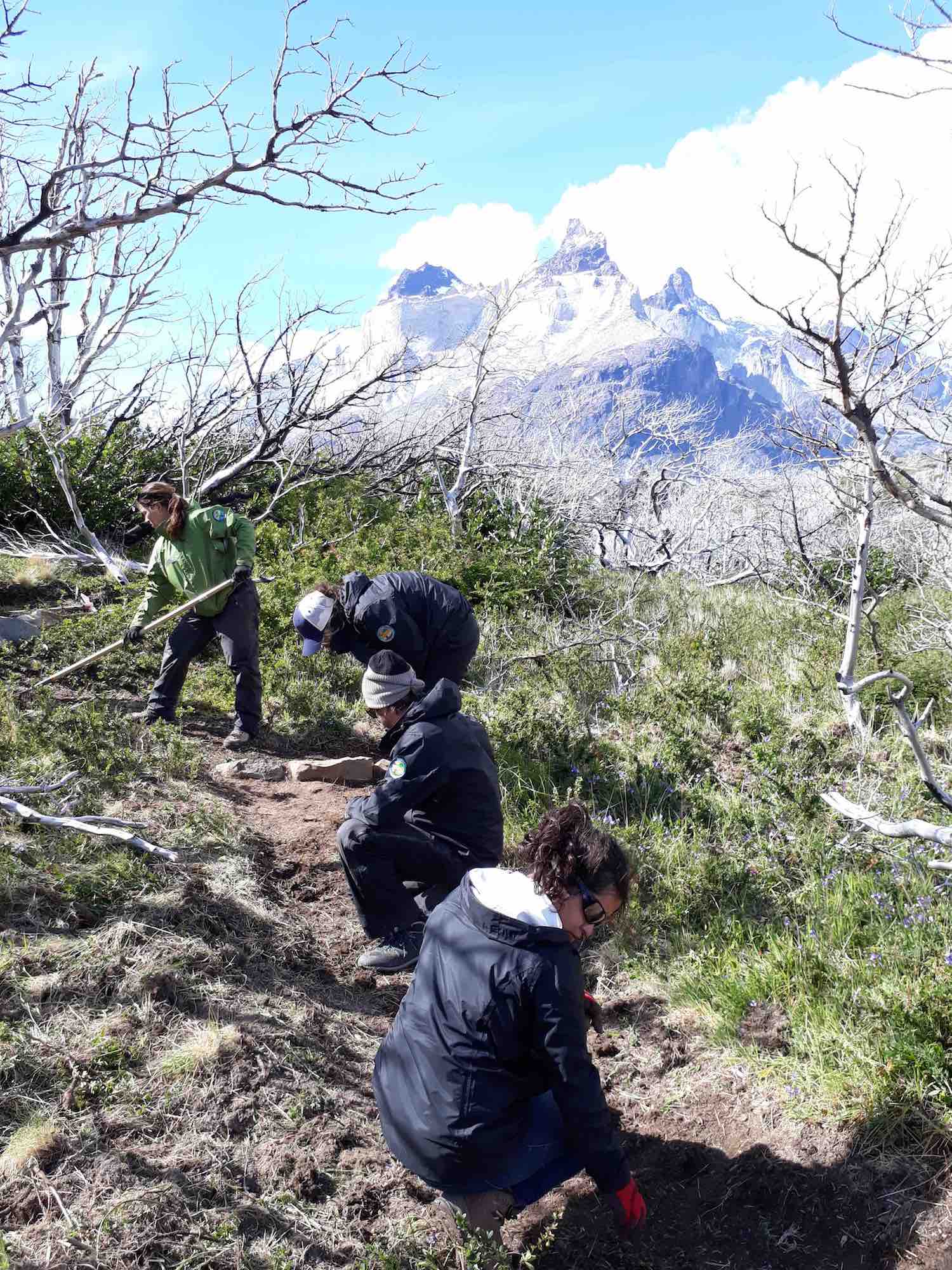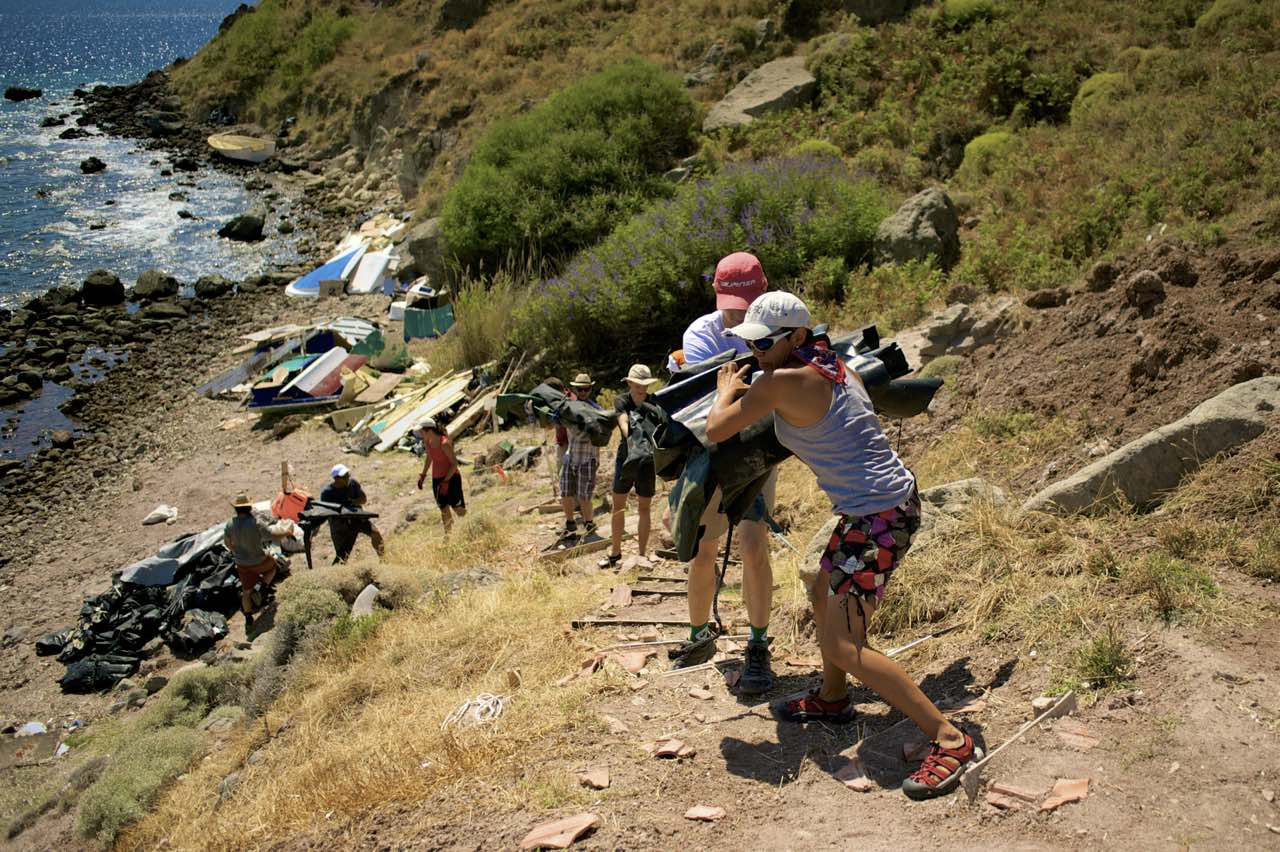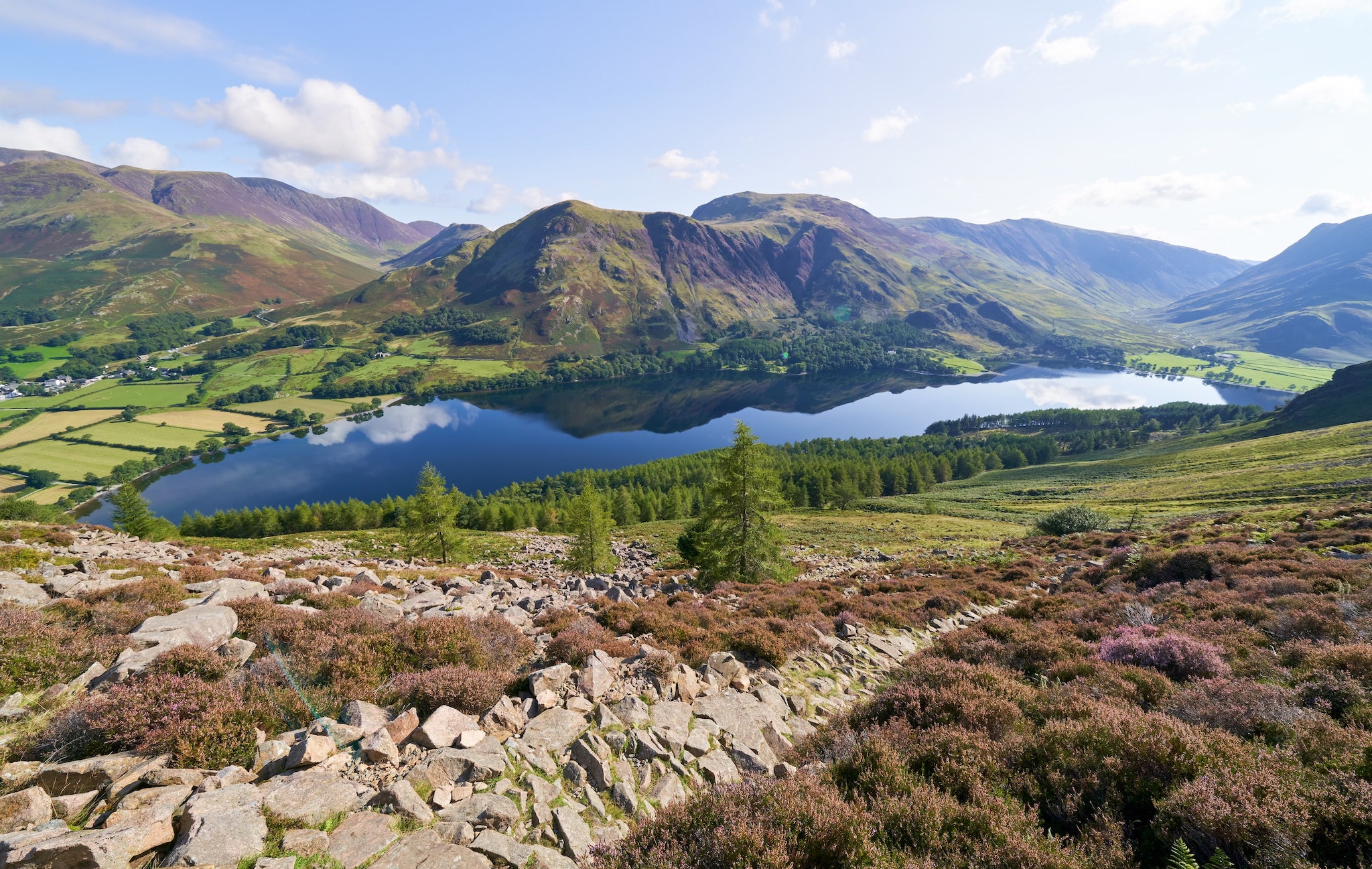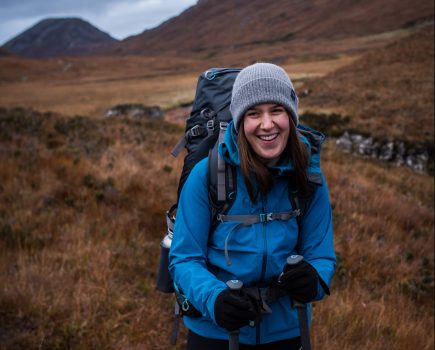The European Outdoor Conservation Association (EOCA) has announced the next nine conservation and rewilding projects it will be funding – including continuing support for Fix the Fells
It follows a public vote that reached millions, and a tense members’ vote. After two weeks in April EOCA described as ‘nail-biting’, with a reach of over 36 million and nearly 60,000 online votes, EOCA has selected its next nine projects. In conjunction with The Great Outdoors in the UK and Alpin magazine in Germany, Austria and Switzerland, voters could choose one project in each category of ‘water’, ‘forest’, and ‘mountain’. Following the public vote, EOCA members participated in a private vote to help choose the next two projects to receive funding.
Finally, four EOCA members have chosen to fund or continue funding additional projects themselves.
The Projects
10,000 native trees for Froxán Community, Spain
Nominated by Snugpak, chosen by public vote
The 100-hectare Froxán Commons in Galicia was the first Indigenous and Community Conserved Area (ICCA) to enter the World Database on Protected Areas after going through a national peer-review process, and has been the focus of rewilding and restoration work. It includes a diversity of important habitats, including temperate forests and heathlands. It is also a Special Interest Landscape Site and allows visitors spectacular views of two estuaries from the mountain crest. However, it is threatened by invasive exotic tree species that are hard to eradicate and which increase the risk of fire and reduce biodiversity.
Involving the local community, this project will remove Acacia and Eucalyptus trees over 20 hectares and plant 10,000 native trees to restore natural woodlands. Four hectares of wet heath will be restored through the removal of drainage ditches and the propagation of heather and other species. Finally, a circular 8km trail will be installed for locals and visitors to enjoy the area.
Protecting manta rays and whale sharks, Mozambique
Nominated by Camelbak, chosen by public vote
The plankton-rich waters along the 700km coastline of the Inhambane Province in Mozambique are a critical habitat for ocean giants. It’s one of the few places in the world where both manta ray species are found together as well as whale sharks and humpback whales. Although manta ray tourism is worth $34 million annually in the region, there has been a 98% decline in manta ray sightings respectively, mainly due to unsustainable fishing practices.
MMF has been successfully working in Tofo, where a Locally Managed Marine Area (LMMA) has been established, and is working to establish a second in early 2018. It has also been working with a number of local dive centres to ensure divers are aware of the importance of these magnificent creatures. The project will support current work in Tofo and expand activities into nearby Barra. This project will establish and manage rotational or ideally permanent no-take areas in both LMMAs with the local community; reduce the use of destructive fishing techniques to protect fish stocks; recruit 22 Ocean Ambassadors who will raise awareness of the issues; train 10 fishermen to become Ocean Rangers to protect and enforce regulations; develop a sustainable fish consumer guide, establish new livelihoods for fishermen and recruit restaurants to support and promote sustainable fish.
Enhancing and safeguarding Torres del Paine’s ‘O’ Circuit, Chile
Nominated by Haglöfs, chosen by public vote in conjunction with The Great Outdoors and Alpin magazines
Torres del Paine National Park in Chilean Patagonia is a UNESCO biosphere reserve due to its exceptional ecological significance. With four distinct ecosystems, the park is home to a wide variety of wildlife, including 40 different mammals and approximately 115 bird species. Roughly one third of these birds rely on the park’s wetland ecosystems. This National Park is becoming increasingly popular with visitors, with 252,000 visiting in 2016, an increase of 19% on the previous year.
Such intensive use and overcrowding has placed a significant strain on the region’s flora and fauna, aging infrastructure, limited trails and insufficient resources. Since 1985, three fires inadvertently started by tourists have devastated huge areas of the park. This project will protect and enhance the National Park by providing appropriate infrastructure and interpretive information that allows visitors to responsibly enjoy and learn about the park’s critical wetland ecosystems. Working with local volunteers and park rangers, it will construct a 170m, high-quality boardwalk along heavily used but sensitive segments of the popular 7-day ‘O’ circuit trail, which circumnavigates the Paine Massif. It will also design and install interpretive displays that communicate the critical features of the transited ecosystems to an estimated 10,000 trail users annually.
Plastic management in the Gulf of Honduras
Nominated by Bergans of Norway, chosen by EOCA members
The Caribbean coasts of Guatemala and Honduras are part of the second largest Barrier Reef in the world and therefore their protection is of the utmost importance. The coral reefs, seagrasses and mangroves that are found in the area are being affected by solid waste, sedimentation, nutrients and pollution from the Motagua River, causing an alarming visual impact and plastic debris injures and causes the deaths of fish, seabirds and marine mammals.
This project will work with eight most affected communities in the Gulf of Honduras to reduce plastic pollution on the beaches of the Caribbean. Twenty volunteers will be recruited from each community and will act as regional representatives for their coast. Following training, each volunteer will deliver at least 20 talks on environmental education to community groups, businesses, schools and universities about the harmful effects of plastic waste on habitats and species. At least 80 beach clean events will also be carried out. During these campaigns, people will not only collect the waste, but also help to classify and record the waste to create social awareness, change habits and develop or propose policies based on objective information, translated in numbers and percentages.
Kozara protection and restoration, Bosnia Herzegovina
Nominated by Rohan, chosen by EOCA members
Kozara National Park is one of the most-visited protected areas in Bosnia Herzegovina, and draws over 100,000 visitors annually. Zeciji Kozara is one of the best-known and loved routes in the park. It is a natural rocky viewpoint but represents the most heavily used route in the park which has damaged both the route and surrounding habitats as visitors create new paths to avoid eroded ones.
The project will create an alternative route, to protect the fragile habitats of hop hornbeam, flowering ash, yew and their associated wildlife and watercourses. This will minimise negative human impact on local habitat and biodiversity as well as maintain a footpath in the priority area. The project will create a new 4km-long path, restore habitat by planting 1500 saplings of European yew, engage outdoor enthusiasts through hands-on work and volunteering activities, and promote the new path by producing leaflets and organising guided walks for the local community.
ECO Relief Lesvos, Greece
Chosen and funded by Original Buff S.A.
The number of refugee arrivals on Lesvos is now at its highest point since Greek borders closed in 2016. A direct byproduct of this humanitarian crisis is the huge amount of rubbish being left on the coastline: dinghies, life jackets and other waste strewn on the island’s beaches, which is detrimental both to the local environment and to the local economy. Given the high number of arrivals on the island, Lighthouse Relief is increasingly aware of the need to add to its humanitarian work with the refugees by stepping up its efforts to ensure that the beaches of Lesvos remain clean and protect the local environment, supporting the tourist industry and thus the struggling local population.
The goal of this project is to use the summer months in 2018 to work with teams of dedicated volunteers to clean the beaches. Hiking and biking trails will be cleared to access remote beaches for the clean up, which will also benefit the outdoor enthusiasts that come to the island. 100 beach cleans will clear around 37km of shoreline on the north shore of Lesvos, and 30 days will mark, clear and repair about 100km of hiking trails. The collected waste will be taken to projects on the island which will be used to raise awareness of and funds for the refugees.
Conservation of Saaimaa ringed seals
Funded for the last three years by POMOCA
The Saimaa ringed seal is a subspecies of the ringed seal that was isolated from the Baltic Sea in Lake Saimaa, Finland, around 8,000 years ago. The population was reduced drastically at the end of the 19th century due to bounty hunting and again during the 1960s due to the use of fishing nets made from nylon. Today the critically endangered population is around 320, and threatened by traps used by recreational fishermen, increased tourism and climate change. For the third year in a row, POMOCA is funding this project, to continue the work of the Finnish Association for Nature Conservation with recreational fishermen, tourism providers and local communities, to ensure the survival and protection of the Saimaa ringed seal into the future.
Restoring Mangroves and Livelihoods, Indonesia
Funded for the last two years by KEEN
The Banda Aceh area is still struggling the after effects of the 2004 tsunami. All of the mangroves were lost, resulting in lack of important shade and loss of habitat for small fish – and therefore food and income for the villagers. Seawater now comes onto the land making it impossible to grow crops. Through this project, and with KEEN’s support in 2017, YADESA ACEH has planted 45,000 mangrove seedlings in the Lam Guron area. 80 people were trained by an expert in mangrove establishment and care, and in turn supervised 468 families involved in the project. Further inland, 400 fruit trees were planted as a source of income. Through renewed funding this year, the project will continue its vital work into neighbouring communities, including the next generation.
Fix the Fells, UK
Funded by Smartwool
Scafell Pike is England’s highest and most iconic mountain! It will therefore always be a popular mountain to climb but is a priority for path repair because of the worrying levels of erosion from the sheer numbers of people visiting each year. Scafell Pike supports the rare and protected montane moss called Woolly Hair Moss, only found on the highest fells on exposed rock and scree. The project will stone pitch new sections of popular paths on Scafell Pike from Wasdale in the Brown Tongue and Lingmel Col area to stop walkers leaving the path. This has been causing rapidly spreading erosion, which is creating deep gullies and ugly scars on the landscape as well as damage to local habitats. Smartwool, which has recently joined EOCA again as a member, will raise money for this project during ‘Socktober’ to fund this work in 2019.
outdoorconservation.eu

